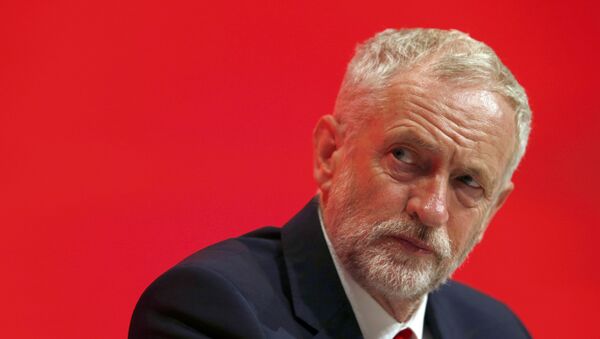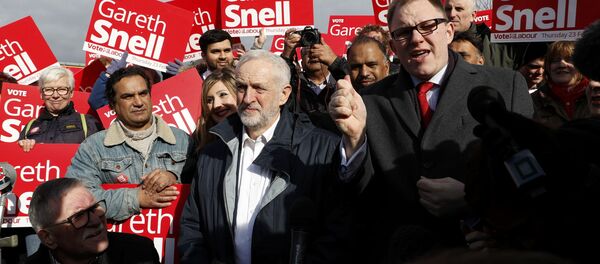However, Labour is split over the issue, with many pro-EU MPs representing constituencies where the majority voted to leave the EU.
According to papers leaked to the London Times newspaper, Labour has lost nearly 26,000 members since last summer. The number of resignations in 2016 was more than the total of the previous six years combined. Labour's membership has dropped from 554,000 in July 2016 to 528,180 in February 2017.
The media may be blaming #Corbyn for losing #Copeland, but the facts tell a very different storyhttps://t.co/tFS6aDtEsl pic.twitter.com/mVfHoNxd4e
— Momentum Oxford (@MomentumOx) 25 February 2017
In February, Labour lost the parliamentary seat of Copeland, in north west England, which it had held since 1935, marking a new low for the party. For the Conservatives to have won Copeland after having been in Labour hands for 80 years is a clear sign of the disarray within the Labour Party — its grassroots membership, its disparate splinter groups and the parliamentary Labour Party (PLP) under Corbyn.
On the Brexit referendum, Copeland voted to leave — by 23,528 to 14,419, while it was official Labour Party policy to remain. Corbyn — despite being a long-term euroskeptic — has now ordered his party to back triggering Article 50 of the Treaty of Lisbon — the formal starting gun for Brexit — despite his own party being split.
Support Boost
Corbyn was an outsider in the Labour leadership election forced by the resignation of former leader Ed Miliband, who failed to deliver victory at the 2015 general election. He won by a landslide — caused mainly by an upsurge in new left-wing party members.
However, the upsurge in support came as a result of a rule change making it easier and cheaper to gain membership and vote. Left-wing supporters — including the pro-Corbyn Momentum — used the rule change to boost membership, which led to him winning a leadership challenge, 2016, with an increased majority.
The latest ComRes poll shows that just a third (32 percent of Labour voters think Corbyn is the right person to lead the Party into the 2020 general election. However, the story is worse when the voting intentions of non-Labour voters — those the party needs to win over — are taken into account.
Seventy-seven percent of non-Labour members — who the party needs to win over — believe the party doesn't have the right leader, 73 percent think it doesn't have the right policies and 71 percent think it has lost touch with the working classes.



